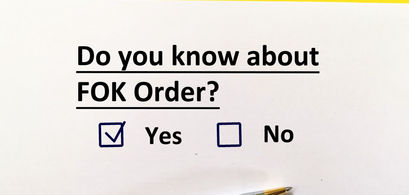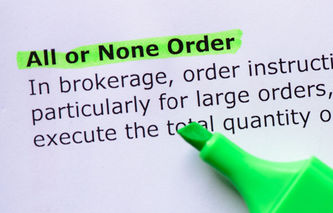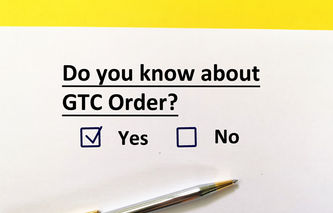Definition
The term Fill-or-Kill refers to broker instructions to buy or sell a security immediately, and in its entirety, or cancel the order. From a practical standpoint, a Fill-or-Kill order specifies the instruction will remain active for several seconds before being filled or canceled.
Explanation
Typically used when referring to stocks, a Fill-or-Kill (FOK) order instructs a broker to buy or sell a predetermined amount of securities in their entirety immediately or cancel the transaction. A partial sale or purchase is not considered acceptable. The order can only execute if a single transaction can cover all of the designated shares.
While an All-or-None order remains active until cancelled, a Fill-or-Kill order is cancelled immediately if the securities are not available. FOK orders are usually large orders placed by institutional investors, typically paired with a limit or market order. As it the case with Good-Til-Canceled, Fill-or-Kill specifies the term of the order.






